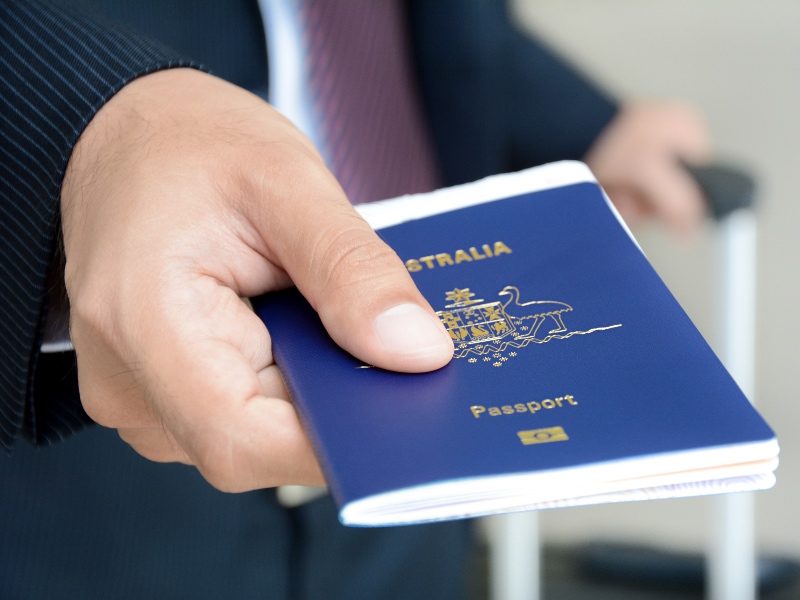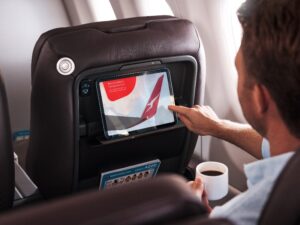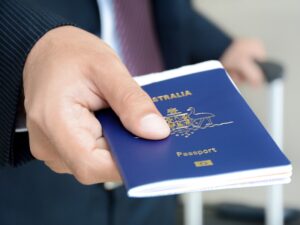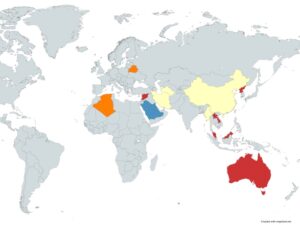
Since 25 March 2020, Australian citizens and permanent residents have been banned from leaving the country without a travel restriction exemption from the Department of Home Affairs.
Australia’s outbound travel ban was first introduced in response to the unfolding COVID-19 pandemic, before Australia had a hotel quarantine system. It was designed to stop Australians going on overseas holidays and returning with coronavirus. Since then, the outbound travel ban has been continuously extended every 3 months.
It is still possible to leave Australia with a travel restriction exemption. But, unless you qualify for an automatic exemption, you will need to provide evidence of a compelling reason that you need to travel urgently in order to have your application approved. Even so, many Australians have reported that their applications have been rejected arbitrarily or without a reason being provided.
Since April 2021, an exemption is not required to travel from Australia to New Zealand.
If you want or need to leave Australia in the near future, here’s what you need to know about getting an exemption to leave Australia…
Travellers who don’t require an exemption
Firstly, if you’re not an Australian citizen or permanent resident, you do not need an exemption to leave the country. (However, you may be unable to return as Australia has also banned people who are not Australian citizens, permanent residents or their immediate family members from arriving without an inbound travel exemption. If this applies to you, it is possible to apply for an inbound travel exemption before you depart Australia.)
If you’re Australian but normally live overseas, you previously qualified for an automatic exemption as well. But from 11 August 2021, the Australian government is no longer giving automatic exemptions to leave the country for Australians normally residing overseas.
There are also various other automatic exemptions, including for airline and maritime crew members and ADF personnel travelling on official business.
See the Department of Home Affairs website for more details.
Applying for an exemption
If you’re an Australian citizen or permanent resident who normally lives in Australia, you can still apply for a travel exemption if your reason for leaving the country falls into one of the following categories:
- Part of the response to the COVID-19 outbreak, including the provision of aid
- Essential for your business/employer
- Receiving urgent medical treatment that is not available in Australia
- Compassionate or humanitarian grounds
- Travel is in the national interest
- You are travelling outside Australia for a compelling reason for 3 months or longer
Requests to leave Australia are approved on a case-by-case basis, but as a guide would generally be granted for things like:
- Visiting critically-ill immediate family members, or attending the funeral of a close family member
- Receiving necessary medical treatment that is not available in Australia
- Picking up a young child/ren (including adopted or surrogate children) in order to return to Australia with that child
- Completing an existing work contract (e.g. FIFO workers)
- Travelling for elite sporting events
- Travelling for important business
The possibility to apply for an exemption because you plan to leave Australia for a compelling reason more than 3 months was only introduced in late 2020. This was not initially a reason to leave when the travel ban came into place. But you can now get an exemption if you don’t plan to return for at least 3 months and have a compelling reason to travel, such as studying overseas or visiting a long-term partner. If you apply for an exemption through this category, you will have to complete a Commonwealth Statutory Declaration.
If you’re eligible, you can apply for an exemption on the Department of Home Affairs website. The government recommends you apply between 2 months and 2 weeks prior to travel, although you can apply within a fortnight if you’re travelling due to the death or serious illness of a close family member. Once approved, your exemption is valid for 3 months and can only be used once.
You don’t need to have flights already booked to apply for an exemption (although it may help your case if you’re applying to leave for more than 3 months). But you will need to provide evidence to support your application, as outlined on the Home Affairs website. You can submit up to 25 documents with each application, and in general it is advisable to submit as much proof to support your case as possible.
Access to COVID-19 vaccination if your application is approved
If you’re an Australian citizen or permanent resident and your outbound travel exemption is approved on/after 20 May 2021, you will automatically become eligible to receive a COVID-19 vaccine in Australia before you leave – regardless of your age.
However, this does not apply to requests approved on the grounds of “compelling reason to travel for more than 3 months”.
Risks of travelling overseas
If you have a compelling enough reason to travel outside Australia, your travel exemption request will most likely be approved as long as you provide sufficient supporting documentation. But you should beware of some of the risks of international travel during the pandemic.
Firstly, you will likely have trouble returning home. The number of passengers allowed to return to Australia each week remains very limited, and there are few commercial flight options. There’s still a huge backlog of stranded overseas Australians trying to get home, and this is unlikely to clear until next year. If you really need to return to Australia, expect to pay many thousands of dollars for a ticket.
Secondly, depending on the country you’re travelling to, you could be at a heightened risk of contracting COVID-19. And as the Australian government still considers every other country a “Do Not Travel” zone, it’s unlikely you’ll find a travel insurance policy that will cover COVID-19 or international travel.
Thirdly, you’ll need to undergo two weeks of hotel quarantine at your own expense when returning to Australia.
Keep in mind that some other countries also currently have closed borders, or require an exemption or a negative COVID-19 test to travel there. So even if you can leave Australia, you may not be permitted entry to some other countries.
The Smartraveller website has more advice about travelling overseas at this time.
The Australian Frequent Flyer forum has lots of useful posts and information about applications to leave Australia. You can join the discussion here: Experience with Australian border controls leaving the country
















































































